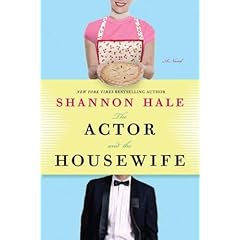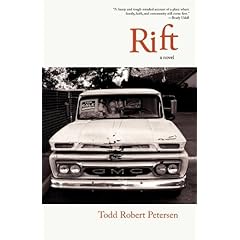 Title: The Actor and the Housewife
Title: The Actor and the HousewifeAuthor: Shannon Hale
I stayed up late, late, late last night finishing The Actor and the Housewife. On the "keeps me reading late into the night factor" I guess I should give it a good rating. And barring that, Annie's looking over my shoulder, and her third-grade teacher is Hale's aunt, and Annie will be sure to tattle on me if I don't have nice things to say.
Honestly, though, it was a cute book. Becky Jack is a frumpy, thirty-something Mormon housewife and mom of almost-four when she meets Hollywood superhunk Felix Callahan (I kept picturing Colin Firth in Brad Pitt's body) and they immediately fall into an intense best-friendship. Over the next decade, they explore the age-old question "Can men and women ever just be friends?" In Mormon circles, Hale's characters frown on the friendship, and she often second-guesses her need to have a close emotional relationship with a man who is not her (amazing, ridiculously wonderful) husband.
This novel, like Hale's other books, has an audience wider than just Deseret Book readers, and I guess that's what makes me uncomfortable about parts of it. If there's something that embarrasses you about Mormon culture (dorky bishops giving bad advice, our oft-misguided culinary choices, kissing over the temple altar for the first time), Hale goes there. Jack is outspoken and abhors swear words and t-shirts with slogans. She's quick-witted enough to banter with the most flippant of Hollywood stars, but is overwhelmed by her wardrobe and the state of her kitchen counters.
I know I complained about the sappy-happy ending of Austenland, but I'm tired this morning after staying up all night to finish The Actor and the Housewife. To tell you the truth, I didn't get the ending I expected, probably based on what happened in Austenland. But the right thing happens, and the right thing is probably the only thing that would have satisfied Becky Jack. If you are a Mormon housewife, you'll probably enjoy the book as escapist fiction. If you're not, don't judge me based on Becky Jack. I've never made three pies a week to give away. No, I'm more of a brownie girl myself...










